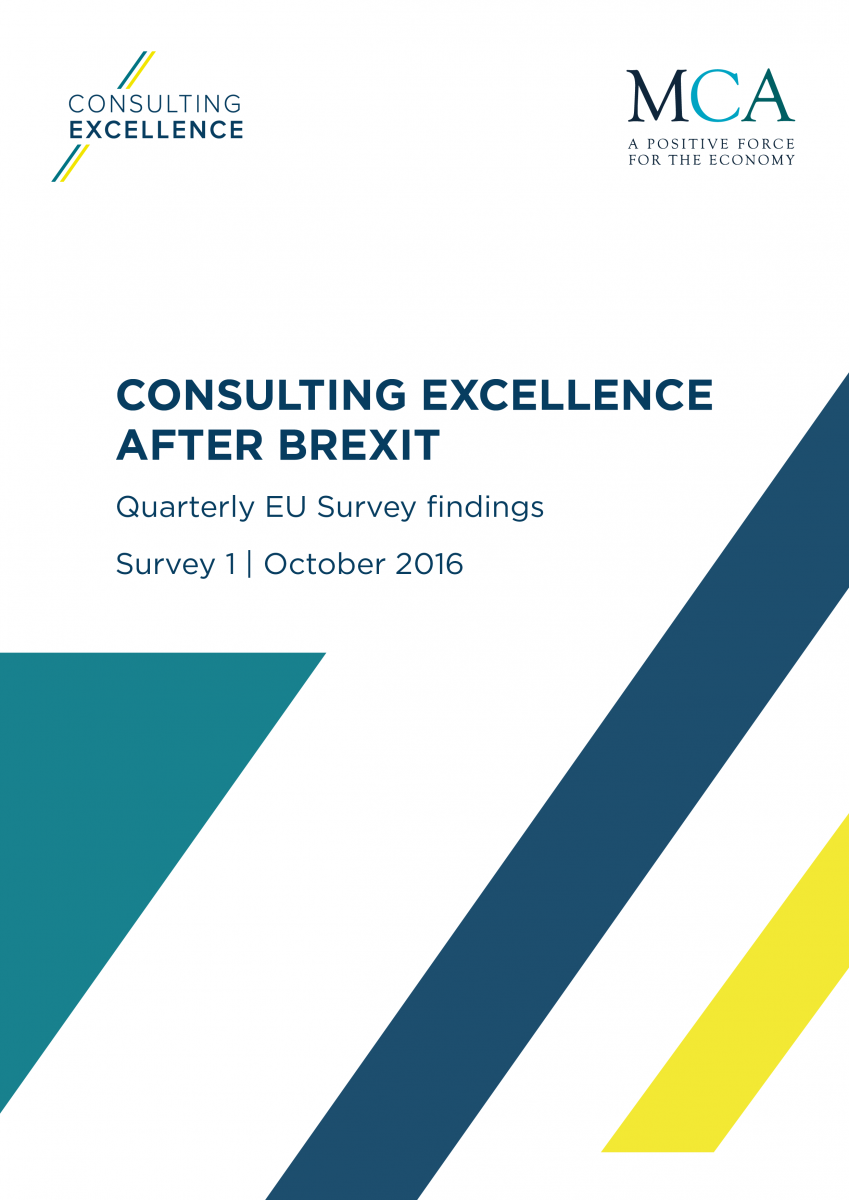The MCA has released the findings of its first quarterly member survey on the impact of the UK’s decision to leave the European Union. Consulting firms are already reporting adverse effects and are calling for clarity on the Government's Brexit intentions.
Project delays and general confusion or uncertainty were prominently listed as early impacts to the UK economy by consulting firms. The Financial Services sector is seen to be facing the most detrimental effects with 70% recognising Brexit’s negative impact in the sector. Similar worries were reported across most others sectors, most notably in Infrastructure, Energy, Transport and Digital. Subsequently, 11% of consulting firms have seen a negative impact on their own revenue following the Brexit vote.
Early indications of Brexit's impact on recruitment in the consulting industry was also recognised with 6% of firms already experiencing difficulties in hiring skilled labour. The retention of free movement in Brexit negotiations was recorded as one of the top policy objectives supported by the industry with EU nationals comprising up to 30% of some firms’ current workforce.
Consulting firms also expressed concerns over Brexit’s impact on their clients with 50% of firms reporting that Brexit has already had a negative effect on their client’s growth expectations and confidence. 78% of firms recognised the UK’s access to the Single Market as a significant policy for their clients. Confusion and concern was also observed from many of the firm’s overseas networks.
Conversely, a small percentage of firms have seen some positive impacts following the Brexit vote. Demand for additional consulting support in the public sector has been reported, while a weak sterling has also thought to have brought some positive effects to export-reliant sectors such as Manufacturing and Retail & Leisure.
Paul Connolly, MCA Think Tank Director, commented:
“Since the survey of MCA firms conducted prior to the EU referendum showed overwhelming opposition to Brexit, the tone of some of the responses here is unsurprising. MCA members, in common with many other business leaders, are very unlikely to want to see a ‘hard’ Brexit, and will favour the retention of many of the benefits of the EU, in particular access to skilled labour and the Single Market.
Nevertheless, since the referendum, MCA firms have expressed both a desire to get on the front foot and to help make Brexit work. The findings here are also in keeping with that desire. For example, respondents seeking clarity about the nature of the Government’s Brexit intentions want this both for themselves, but also for their clients. Consultants create value in the economy by helping clients with their challenges. Clarity about the nature of those challenges is accordingly useful. Consultants can help clients solve problems, but only if they know the nature of those problems.”
The survey will act as a baseline against which the MCA will use to track changes and developments over the coming months. The respondents constitute a representative sample of the MCA membership with over one-third of firms participating. The MCA will publish its next quarterly survey early in 2017.
Consulting Excellence after Brexit: Quarterly EU Survey findings (Part 1) is now free to download on the MCA website.


